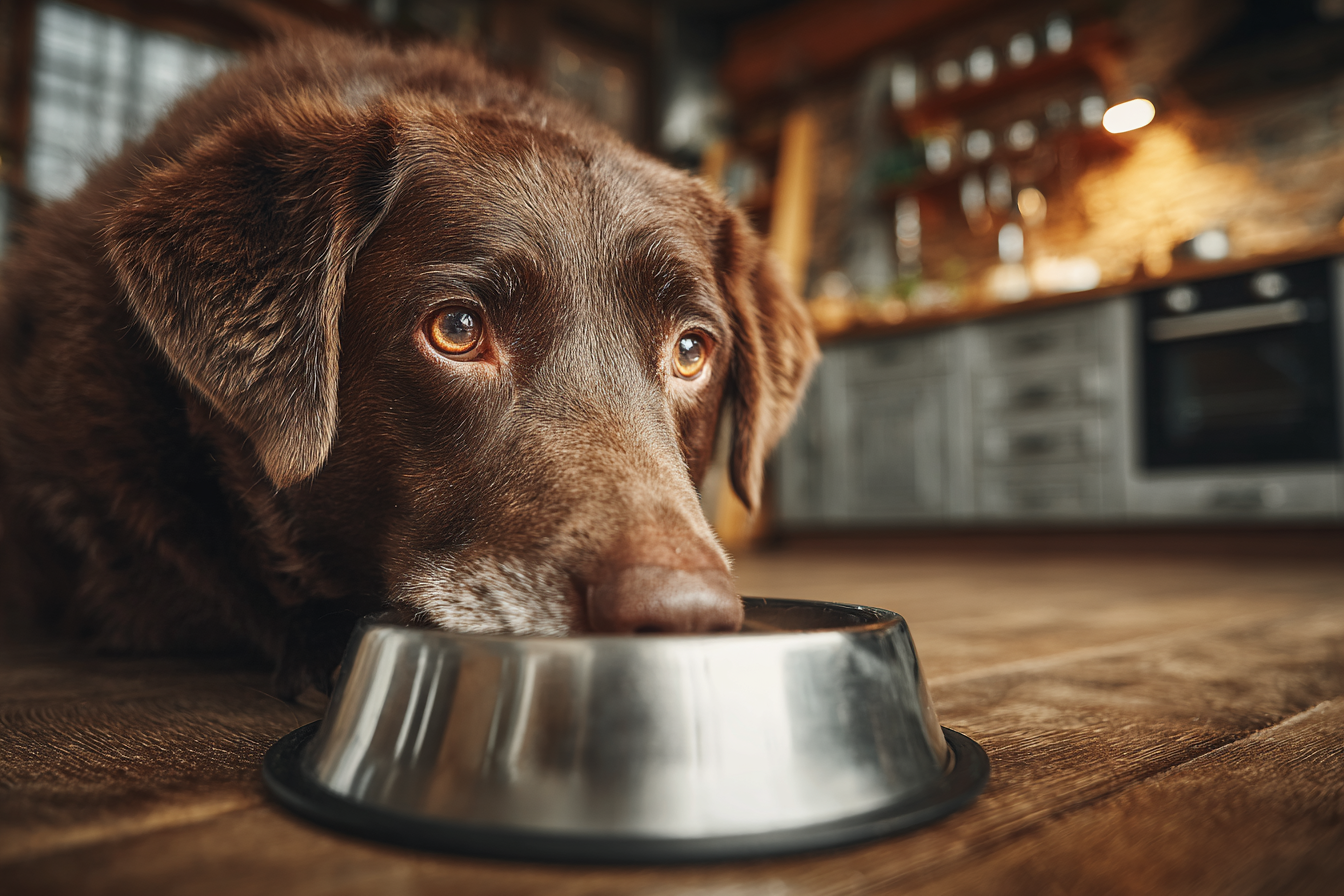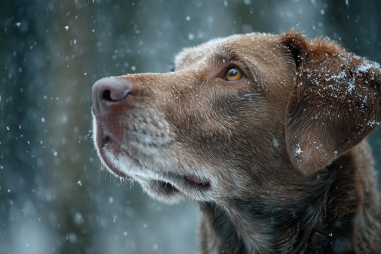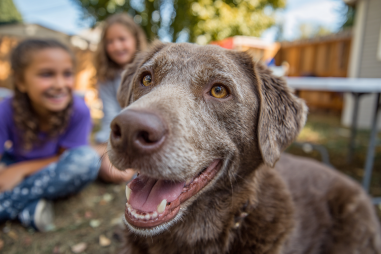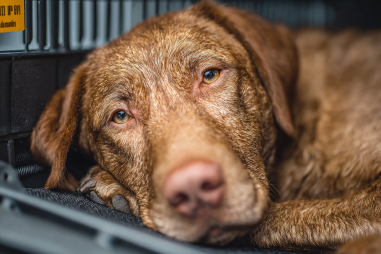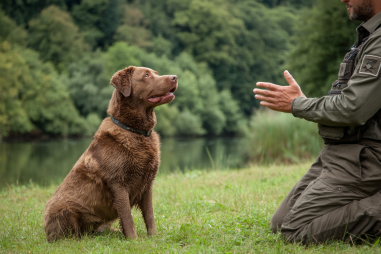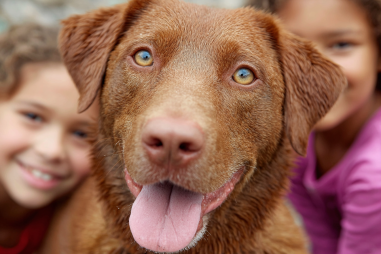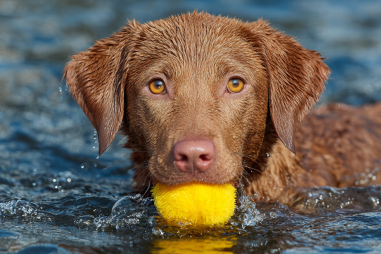Feeding your Chesapeake Bay Retriever the right diet is essential to keep this energetic and intelligent breed healthy and thriving. Known for their strong build, remarkable stamina, and keen hunting instincts, Chesapeake Bay Retrievers have specific nutritional needs that support their active lifestyle and maintain their distinctive coat quality. Whether you opt for commercial dog food or prefer a homemade diet, understanding what to include and avoid in their meals can make a big difference in their overall well-being. Let’s explore the optimal diet and nutrition plan for your Chesapeake Bay Retriever, ensuring they get all the nutrients they need to live a vibrant and healthy life.
Nutritional Needs Specific to the Breed
Chesapeake Bay Retrievers are medium to large-sized dogs with a muscular build and a high energy level. Because of their active nature, these dogs require a diet that supports endurance, muscle development, and a healthy immune system.
Protein is a vital nutrient for your Chesapeake Bay Retriever. It supports muscle repair and growth, especially important since many owners engage their dogs in hunting, swimming, and other demanding activities. A daily protein intake of about 22-28% is generally recommended for adult dogs of this breed.
Fats are another important element of their diet, providing a concentrated energy source and promoting a healthy coat. Omega-3 and Omega-6 fatty acids specifically benefit their dense, water-resistant coat and keep their skin hydrated. Including sources like fish oil or flaxseed oil in their meals can be beneficial.
Complex carbohydrates such as brown rice, barley, and sweet potatoes provide sustained energy, which is essential for active dogs who require long-lasting fuel throughout their day. Additionally, fiber from vegetables and grains helps maintain digestive health.
Chesapeake Bay Retrievers also benefit from a balanced intake of essential vitamins and minerals, including calcium and phosphorus for strong bones and teeth, antioxidants to support the immune system, and B vitamins for energy metabolism.
Recommended Commercial Diets
Choosing a high-quality commercial dog food can simplify feeding your Chesapeake Bay Retriever while still meeting their nutritional requirements. Look for brands that specify real meat as the first ingredient and avoid fillers like corn, soy, or wheat, which offer little nutritional value.
Many premium dog food manufacturers offer formulas specifically designed for active or working breeds. These diets often have higher protein and fat contents suited for a Chesapeake Bay Retriever’s lifestyle. Some recommended brands known for quality include:
- Orijen
- Blue Buffalo Wilderness
- Wellness Core
- Canidae All Life Stages
- Merrick Grain-Free
When selecting commercial dog food, always check the AAFCO (Association of American Feed Control Officials) statement on the package, which ensures the food meets established nutritional standards. Also consider your dog’s age, weight, and activity level when choosing between puppy, adult, or senior formulas.
Homemade Diet Options
Many owners prefer preparing homemade meals to have full control over their Chesapeake Bay Retriever’s food and tailor it specifically to their needs or allergies. A balanced homemade diet should include high-quality protein, carbohydrates, fats, and essential vitamins and minerals.
Good protein sources include chicken, turkey, lean beef, fish, and eggs. For carbohydrates, options like sweet potatoes, brown rice, and quinoa are excellent choices. Vegetables such as carrots, peas, spinach, and green beans can provide fiber and antioxidants.
When preparing homemade meals, it is important to ensure the diet is nutritionally complete and balanced. This might require consultation with a veterinary nutritionist. Supplements such as calcium (from ground eggshells or bone meal), fish oil, and multivitamins may be necessary to fill any nutrient gaps.
A sample meal might consist of:
- Cooked lean chicken breast
- Steamed sweet potatoes
- Steamed spinach or green beans
- A tablespoon of fish oil
- A calcium supplement
Always avoid ingredients toxic to dogs, such as onions, garlic, chocolate, grapes, and certain artificial sweeteners like xylitol.
Feeding Schedules and Portions
Maintaining a consistent feeding schedule helps regulate your Chesapeake Bay Retriever’s digestion and energy levels. Most adult dogs do well with two meals per day—one in the morning and one in the evening.
Portion size depends on your dog’s weight, age, activity level, and metabolism. As a general guideline, adult Chesapeake Bay Retrievers weighing 55-75 pounds typically consume between 2½ and 3½ cups of quality dry food daily, divided between two meals. Active or working dogs may require more calories, while less active or older dogs need fewer.
Adjusting portions based on body condition is essential. You should be able to feel your dog’s ribs without excess fat covering and see a defined waist when viewed from above. If your dog gains excess weight, reduce portions or increase exercise; if they lose weight or appear hungry, increase portions appropriately.
Supplements and Treats Advice
While a balanced diet generally provides all necessary nutrients, some Chesapeake Bay Retrievers benefit from supplements to support joint health, coat condition, and overall vitality.
- Glucosamine and Chondroitin: Help maintain healthy joints, especially important for a breed prone to hip dysplasia or arthritis.
- Fish oil or Omega fatty acid supplements: Promote a healthy coat and skin and reduce inflammation.
- Probiotics: Aid in digestive health and nutrient absorption.
For treats, always opt for healthy options like small pieces of lean cooked meat, baby carrots, apple slices (without seeds), or commercially available dog treats with natural ingredients. Limit treats to no more than 10% of your dog’s daily caloric intake to avoid weight gain and nutritional imbalances.
Signs of Dietary Issues
Being alert to signs your Chesapeake Bay Retriever may be experiencing dietary problems allows you to make timely adjustments. Common indicators include:
- Weight changes: Sudden weight loss or gain can indicate underfeeding, overfeeding, or an underlying health problem.
- Skin and coat problems: A dull, dry, or flaky coat might suggest nutritional deficiencies, especially in fatty acids.
- Digestive troubles: Frequent diarrhea, vomiting, excessive gas, or constipation may mean your dog’s diet isn’t agreeing with their system.
- Low energy or lethargy: Insufficient calories or nutrient deficiencies can leave your dog less active than usual.
- Excessive thirst or urination: This can indicate kidney issues or diabetes, often influenced by diet.
If you notice these signs, consult your veterinarian promptly to diagnose and correct the issue before it impacts your dog’s health seriously.
Feeding Your Chesapeake Bay Retriever for a Happy, Healthy Life
Providing your Chesapeake Bay Retriever with the right diet and nutrition is a cornerstone of their overall health and happiness. By understanding their unique nutritional needs, choosing appropriate commercial or homemade diets, maintaining consistent feeding schedules, and paying attention to supplements and treats, you can ensure your beloved companion thrives. Always be attentive to any signs of dietary issues, and consult with your veterinarian for tailored advice. With the right approach to feeding, your Chesapeake Bay Retriever will enjoy a lively, active life with a shiny coat and robust health.

